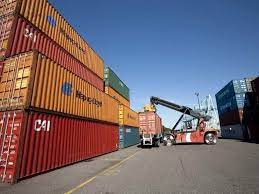The COMESA-EAC-SADC Tripartite Free Trade Area (TFTA) Agreement officially came into force on Thursday following ratification by the requisite number of member states.
The agreement required at least 14 out of the 29 countries in the region made up of the Common Market for Eastern and Southern Africa (COMESA), East African Community (EAC) and Southern African Development Community (SADC) to deposit their instruments of ratification before taking effect.
According to SADC Executive Secretary Elias Magosi, the milestone was achieved when Angola deposited its instrument of ratification on June 25.
He said other countries that have so far ratified the agreement are Botswana, Burundi, Egypt, Eswatini, Kenya, Lesotho, Malawi, Namibia, Rwanda, South Africa, Uganda, Zambia and Zimbabwe.
He highlighted that these countries collectively accounted for 75 percent of the Tripartite GDP in 2022.
This development was announced during the 37th Tripartite Task Force Meeting on July 20, held on the sidelines of the 6th African Union Mid-Year Coordination Meeting in Accra, Ghana.
The meeting was attended by COMESA secretary general Chileshe Mpundu Kapwepwe, EAC secretary general Veronica Nduva and Magosi.
The TFTA aims to create an integrated market covering 29 countries in eastern and southern Africa as part of a bold move by Africa to reform internal trade.
Commonly known as the Tripartite Free Trade Area (TFTA), the integrated market was launched in June 2015 in Egypt when the agreement was signed.
The TFTA creates a combined population of some 600 million people covering half of the member states of the African Union and a gross domestic product of over US$1 trillion.
The enlarged market aims to promote the smooth movement of goods and services across borders, as well as allowing member countries to harmonise regional trade policies to promote equal competition.
The harmonisation of trade policies, and removal of non-tariff barriers and other trade barriers such as huge export and import fees would enable countries to increase their earnings, penetrate new markets and contribute towards their national development.
JN/APA


